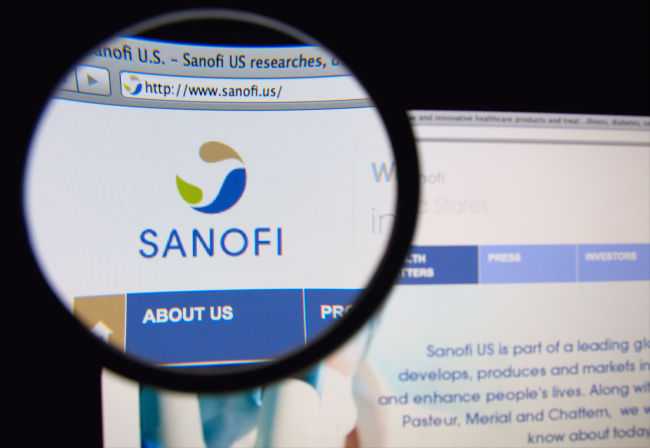French pharmaceutical giant Sanofi has filed a patent infringement lawsuit against US-based Merck & Co. over a Lantus biosimilar the US drugmaker developed with partial funding from Samsung Bioepis.
Sanofi on Monday sued Merck & Co. in the US District Court of Delaware, claiming that Merck’s international division Merck Sharp & Dohme infringed as many as 10 patents held by the French drugmaker for its blockbuster diabetes treatment Lantus and its injection device SoloStar.
The French company said it decided to take legal action against MSD after the US firm submitted its Lantus biosimilar drug MK-1293 seeking sales approval to the US Food and Drug Administration last month.
MSD’s biosimilar drug MK-1293, is an insulin-based diabetes treatment referencing Sanofi’s Lantus. Samsung Bioepis contributed to the development of MK-1293 as an investment partner to MSD.
 |
(123RF) |
In response to Sanofi’s legal actions, Merck & Co. has claimed that its Lantus biosimilar “does not infringe Sanofi’s patents” according to recent media reports. Sanofi’s US patent on Lantus expired back in February 2015.
Sanofi’s lawsuit against Merck comes as part of its continued efforts to defend Lantus -- the company’s top-valued drug whose sales accounted for nearly 20 percent of its revenue last year -- from biosimilars.
In January 2014, Sanofi had filed a similar patent suit against US drugmaker Eli Lilly, which had sought to commercialize its own Lantus biosimilar called Basaglar. The two firms negotiated a settlement that allows Lilly to launch the drug in the US in mid-December.
Biosimilars refer to cheaper, near-replicas of expensive biologic drugs whose patents have expired. Major companies including MSD and Samsung have jumped into the biosimilars business, seeking to gain a portion of the high profits exclusively enjoyed by the original makers of the high-value drugs.
As of now, MSD's Lantus biosimilar MK-1293 is waiting for marketing authorization from not only the US FDA but also the European Medicines Agency, Europe’s pharmaceutical regulatory body.
If approved and cleared of the legal hurdles to commercialization, MK-1293 is expected to become another major contestant to Sanofi’s Lantus as well as Eli Lilly’s Basaglar.
From Samsung Bioepis’ standpoint, MK-1293, also known as SB9, stands as one of its six biosimilar drugs that reference some of the world’s top biologic drugs -- Enbrel, Remicade, Humira, Avastin, Herceptin and Lantus.
Two of them -- one based on Amgen’s Enbrel and another on Johnson & Johnson’s Remicade -- were approved in Europe earlier this year and have been commercialized in the region through its marketing partner Biogen.
The Korean drugmaker is now awaiting regulatory approval to sell its Humira biosimilar in Europe and its Remicade biosimilar in the US. Its two additional biosimilars, each referencing Avastin and Herceptin, are currently undergoing third-phase clinical trials.
By Sohn Ji-young (
jys@heraldcorp.com)








